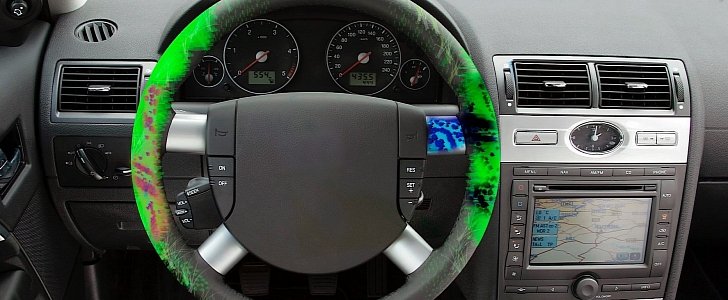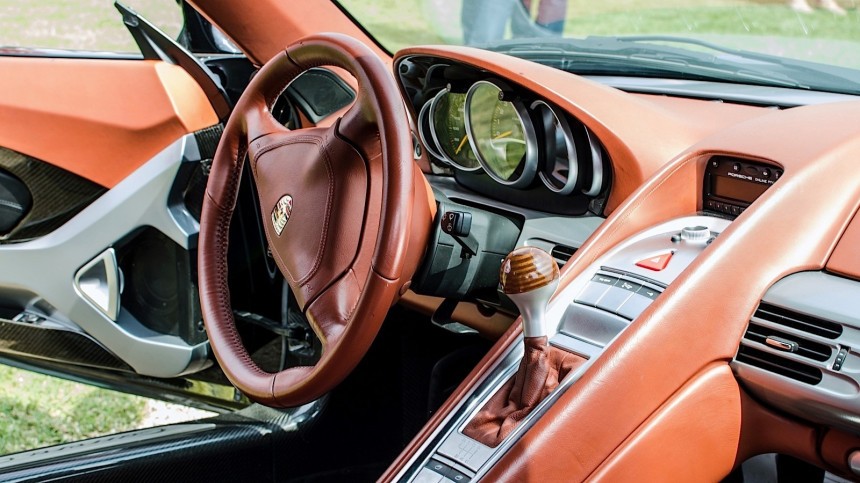There are many things you don’t expect to be dirtier than a toilet seat, yet they are. Your mobile phone is one, your computer keyboard is another and the sponge used to wash dishes with, so as you can imagine, these are things you touch frequently.
What else do you touch frequently and get your greasy palms all around it? Yes, you thought right: the steering wheel in your car.
It’s almost crazy how little attention we pay to the cleanliness of our steering wheels (as well as the gear shifter knob, the handbrake lever, and even the humble cupholder), even though the tiny creatures that call these places home can really harm us.
For reference, according to various studies, a steering wheel was found to have six times more bacteria than your phone, four times more than a toilet seat in a public restroom and twice the amount found on elevator buttons. Granted, it’s still nowhere near as grimy as the average gas pump (and especially the buttons), but that’s so many times filthier that it really deserves its own article detailing it.
One of the two types of bacteria on your car’s helm is from the Staphylococcus genus (not to be confused with Streptococcus). This type of bacteria is more commonly referred to as Staph and so far scientists have identified around 40 species and when viewed under high magnification, they look like bunches of spheres.
Thankfully, most species of Staph aren’t harmful and you probably have some on and in you right now and they’re not hurting you in any way. Plus, they’re quite resilient, being able to grow in both aerobic an anaerobic environments, so they’re not the easiest thing to get rid of. The most dangerous type for humans is called Staphylococcus Aureus (of which there are, of course, many different strains), and it can not only cause skin infections but, even worse, it can enter the bloodstream and affect your internal organs or your bones too.
The other type of bacteria that might be lurking all around your steering wheel is from the Propionibacterium genus. Unlike Staph, this type of bacteria looks more like clusters rods and is not as dangerous to humans. In fact, you not only have such bacteria on your body right now, but it’s also the type of bacteria that are used in cheese making.
Problems caused by this type of bacteria are nowhere near as severe as the possibly life-threatening Staph. They can (but very rarely do) cause infectious diseases and generally just produce acne and some skin conditions. But even if Propionibacterium is not as dangerous as Staph, they can still cause sufficient unpleasantness that you’d still want to give the old steering wheel a good (antibacterial) wipe from time to time.
Aside from Staph and Propionibacterium, your car may also be the perfect breeding ground for bacteria from the Micrococcus, Bacillus, and Pseudomonas, but none of these will affect your life in any significant way. Of these, Pseudomonas can attack people whose immune system is not functioning properly, but for most healthy individuals they are pretty much harmless.
Remember, though, that these are only a handful of the hundreds of different genera of bacteria that might be thriving on your steering wheel. The best thing to do to minimize the risk of getting contaminated is to obviously regularly clean the inside of your car which, according to some studies, is not something most drivers do. In fact, some drivers never really clean their car interiors thoroughly (or at all).
Eating and drinking in your car are additional causes for bacterial infection - grabbing onto the steering wheel with greasy post-French-fry fingers makes it rim a prime location for bacteria to spread? These microscopic critters thrive on oil and dead skin cells, among others, and prefer a damp environment, so keeping these things in mind, it’s really not hard to at least try to keep your steering wheel germ free.
It’s almost crazy how little attention we pay to the cleanliness of our steering wheels (as well as the gear shifter knob, the handbrake lever, and even the humble cupholder), even though the tiny creatures that call these places home can really harm us.
For reference, according to various studies, a steering wheel was found to have six times more bacteria than your phone, four times more than a toilet seat in a public restroom and twice the amount found on elevator buttons. Granted, it’s still nowhere near as grimy as the average gas pump (and especially the buttons), but that’s so many times filthier that it really deserves its own article detailing it.
One of the two types of bacteria on your car’s helm is from the Staphylococcus genus (not to be confused with Streptococcus). This type of bacteria is more commonly referred to as Staph and so far scientists have identified around 40 species and when viewed under high magnification, they look like bunches of spheres.
The other type of bacteria that might be lurking all around your steering wheel is from the Propionibacterium genus. Unlike Staph, this type of bacteria looks more like clusters rods and is not as dangerous to humans. In fact, you not only have such bacteria on your body right now, but it’s also the type of bacteria that are used in cheese making.
Problems caused by this type of bacteria are nowhere near as severe as the possibly life-threatening Staph. They can (but very rarely do) cause infectious diseases and generally just produce acne and some skin conditions. But even if Propionibacterium is not as dangerous as Staph, they can still cause sufficient unpleasantness that you’d still want to give the old steering wheel a good (antibacterial) wipe from time to time.
Remember, though, that these are only a handful of the hundreds of different genera of bacteria that might be thriving on your steering wheel. The best thing to do to minimize the risk of getting contaminated is to obviously regularly clean the inside of your car which, according to some studies, is not something most drivers do. In fact, some drivers never really clean their car interiors thoroughly (or at all).
Eating and drinking in your car are additional causes for bacterial infection - grabbing onto the steering wheel with greasy post-French-fry fingers makes it rim a prime location for bacteria to spread? These microscopic critters thrive on oil and dead skin cells, among others, and prefer a damp environment, so keeping these things in mind, it’s really not hard to at least try to keep your steering wheel germ free.







